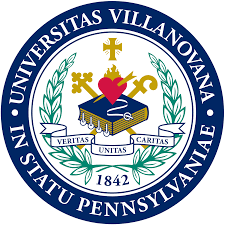
Introduction
Villanova University, located in Villanova, Pennsylvania, is a prominent institution known for its commitment to academic excellence and community service. Founded in 1842, the university has built a reputation for its strong programs in business, law, nursing, and liberal arts. As higher education evolves, Villanova remains relevant by adapting to the changing landscape and addressing the needs of both students and society.
Academic Programs and Opportunities
Villanova offers a diverse array of undergraduate and postgraduate programs across its colleges, including the College of Liberal Arts and Sciences, the Villanova School of Business, and the College of Engineering. The university fosters a student-centred learning environment, promoting academic rigor and ethical leadership.
Recent data indicates that over 6,000 undergraduate students are enrolled at Villanova, with an impressive student-to-faculty ratio of 11:1, ensuring personalized attention and mentorship. Notably, the Villanova School of Business has received acclaim, ranking among the top 25 business schools in the United States, which enhances its students’ prospects significantly.
Campus Life and Community Engagement
Beyond academics, Villanova prides itself on a vibrant campus life. With over 250 student organisations, including cultural, professional, and service-oriented groups, students have ample opportunities to engage, grow, and develop essential soft skills. The university is also dedicated to social justice and community service, encouraging students to participate in outreach programmes that impact local and global communities.
Recently, Villanova has made strides in sustainability, launching initiatives to reduce food waste and promote green energy on campus. This aligns with the university’s commitment to fostering a responsible and ethical community.
Recent Achievements and Future Directions
In line with its mission of service and leadership, Villanova University has recently expanded its facilities, including a new residence hall and improvements to existing academic buildings. These enhancements aim to accommodate the growing student body and ensure state-of-the-art learning environments.
As Villanova continues to evolve, the university’s leadership envisions a future focused on innovation and collaboration. With plans to further develop interdisciplinary programmes and increase research opportunities, Villanova strives to remain a leader in higher education.
Conclusion
In summary, Villanova University exemplifies a commitment to academic excellence, community service, and social responsibility. As it prepares for future challenges, the university remains dedicated to instilling values of ethical leadership in its graduates, ensuring its relevance in an ever-changing world. For prospective students and stakeholders, Villanova presents a compelling blend of tradition and innovation, promising a transformative educational experience.
You may also like

The Importance of Study in Education Today

The Importance of Continuous Learning in Today’s Society
